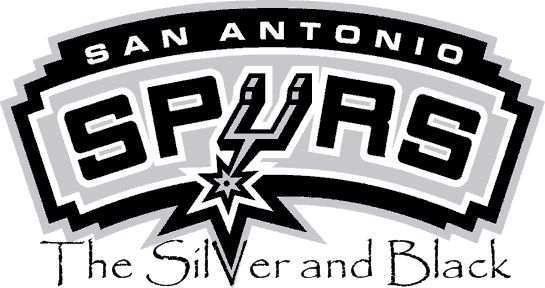
Prior to their 112-99 collapse against Sacramento Monday night (a.k.a. Beno’s wrathful revenge), the Spurs had set a franchise record for best start to a season at 12-2. Sure, they’ve had a cakewalk schedule, but they’ve also been taking care of business. So take every critical statement with a grain of salt, because the Spurs are winning.
But recent trends in playing time have brought forth a resurfacing of sorts: the dreaded small ball.
For the more dedicated of Spurs fans, you recognize the lineup immediately. Duncan mans the center, flanked by any group of Ginobili, Parker, Bowen, Barry, or Finley (with Finley generally manning the power forward position).
When it works, the Spurs play magnificent finesse basketball. The lane opens up for Duncan, and opposing teams sag off of the plethora of shooters. Recently, the Spurs won a high scoring affair with Orlando by predominantly playing small ball, matching up against a Magic team that plays Hedo Turkoglu and Rashard Lewis at the power forward.
Other times, it backfires, like it did against the Kings. Fabricio Oberto tore up the Kings on the interior for 13 points on 6-7 shooting in the first half, but received little playing time as the Spurs started falling behind.
Statistically, the recent pension for small ball has been most readily reflected in Francisco Elson's minutes. Through their first 11 games, Elson averaged 20.1 minutes a game, all off the bench. In the last 4 games he's averaged 8.3 minutes a game, sacrificing minutes (mostly) to Brent Barry. Barry hadn't registered more than 22 minutes in a game all season, but is averaging slightly over 22.1 in the last 6.

The lingering question is whether this style of play best suits the Spurs (or, more specifically, if they can win in the playoffs this way).
Spurs fans remember small ball not stacking up against the Dallas Mavericks in the 2006 playoffs. We also saw it work, albeit inconsistently, against the Phoenix Suns in 2007. According to 82games.com, the lineup of Barry, Finley, Parker, Ginobili, and Duncan was actually one of the better lineups the Spurs put out in '06-07, with a +26 point differential. Statistically, small ball isn't necessarily a bad things for the Spurs.
But stats don't show everything. By playing small, the Spurs often buy into another team's style of play. It generally means that they've been taken out of their traditional two-big lineup. The Kings and Mavs both did they by getting double-digit leads on the Spurs. The Magic also forced the Spurs to play small, but the Spurs managed to hit their shots and eventually put the defensive clamps down.
The Spurs love their flexibility. They can run with the Suns or slug with the Rockets. But small ball isn't usually a tactical strategy by Pop, it's a last ditch effort when his team is struggling.
Like I said, the Spurs are winning, so this may all be trivial. But if other teams (namely Dallas) can force the Spurs to adjust to the small style of play, the Spurs may find themselves sacrificing their defensive foundation for a game of catch up.





No comments:
Post a Comment